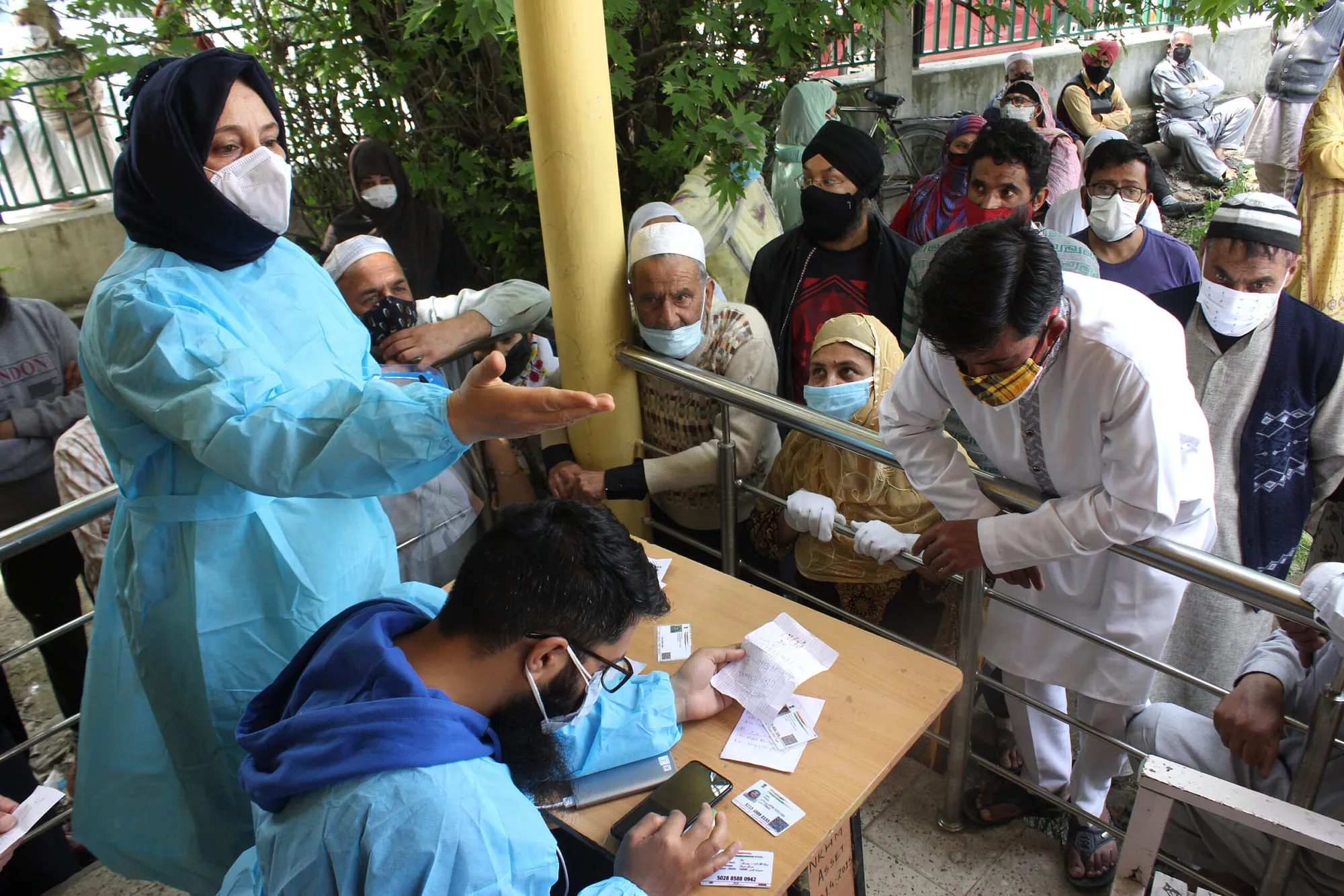As we are witnessing a huge spike of COVID19 infections in J&K along with most parts of India, there is an urgent call for basic preventive measures that will help us to keep our primary health system intact, and provide us space for other measures like vaccination. There is a lot of discussion on ‘COVID19 Appropriate Behaviour’on various platforms urging masses to behave in a certain manner to reduce infections in the population. The World Health Organisation (WHO) has already made full directions for people across the globe to take appropriate steps for the prevention of this deadly disease. Dr. Poonam Singh, Regional Director, WHO South-East Asia Region, recently stressed on the importance of positive community approach by following appropriate COVID19 appropriate behaviour including hand hygiene, social distancing, face masking and other related steps.
The Government of India has already highlighted a set of 15 promises that we need to follow during this pandemic, which are available on the website of the Ministry of Health and Family Welfare (MOHFW). However, from the last one year we have witnessed, people are failing to adapt to various changes that this deadly pandemic has necessitated. Why? Let us explore.
Lack of Science Communication
Lack of science education and proper science communication is one of the major factors which allows the general public to defy COVID19 protocol in the Sub-Continent. Proper scientific temperament is necessary for fighting such global pandemics. Take the example of 2nd and 3rd wave of COVID19 in different poor and developing countries, where people didn’t listen to the warnings of the scientific community that COVID19 has a tendency to spread again after 1st wave if proper protocol is not followed. The lack of authentic scientific information on various online portals is another reason that people get confused about guidelines and their efficacy.
Another important aspect is that research on different preventative measures is still in its infancy, and we have got contradictory research outcomes on some of the key preventive measures. For example, we are not sure how much social distance is effective to avoid this infection. In addition, the scientific community is in dilemma whether COVID19 is spread through droplet/close contact with surfaces or via aerosol. Even recently, a paper showed that social distancing may not be as effective because COVID19 spreads through aerosols. Keeping in view the changing pattern of COVID19 protocol, it is difficult for laymen to fully implement different guidelines prescribed by the recognised medical agencies. It is important for the governments to consolidate right information from the latest research and formulate updated guidelines for the people. General public should also use right scientific communication and use right web portals like MoHFW (https://www.mohfw.gov.in/) & WHO (https://www.who.int/) for authentic updates related to pandemic.
Social context & inequality
There is ample reason to believe that there is social context related to the current spike in India as global pandemics having high infectious rates requires urgent shifts in behavioural pattern. It has been observed that different social and cultural aspects influence human behaviour in a big way and these in turn are reflected in the exposure to the infectious diseases. Such an aspect has been recently addressed in one of the articles published in Nature (2021), in which authors have reported that social behaviours play an important role for the spread and containment of pandemics. Even different cultures have different ways to deal with the disease. There is basically a difference of ‘independent versus interdependent’ in East & West cultures. Such cultural differences have both pros & cons while dealing with natural or pandemic disaster. For example, interdependence cultural behaviour in Eastern Countries can be useful for sharing the psychology and mental distress among the population during pandemics, nevertheless, it can lead to widespread disease due to close association. Social inequality plays an important role for people not following proper guidelines against COVID19. People having poor economic conditions can hardly afford to use expensive masks or sanitizers, and most often such sections of people have no choice but to work even at a greater risk of infection.
Misinformation & conspiracy theories
People also show interest towards fake news and conspiracy theories as most media outlets and websites are full of trash news. Some people are so influenced by the fake news that they still believe COVID19 is conspiracy and there is no need to follow proper protocol. Last year, there was general perception in the minds of people in the Sub-Continent that Asians have better immune systems and they will not catch infection. Even after imposing lockdown in different parts of the country, COVID19 protocol goes for a toss as people still don’t fully believe what medical practitioners and experts advise them. There is an urgent call for awakening people to follow the right information and educate them how to avoid fake information that may be detrimental for society.
In nutshell, it is important for the society and governments to understand various factors (including above) which hinder the adoption of ‘COVID19 Appropriate Behaviour’, mandatory for defeating this deadly disease. We need to follow the protocols prescribed by the government, vaccinate ourselves and provide authentic information about the pandemic to our fellow citizens. Together we can end the pandemic and reclaim our normal lives.The author is Assistant Professor (Zoology), Government Degree College Boys, Anantnag. He can be mailed at: uzssummer2@gmail.com






